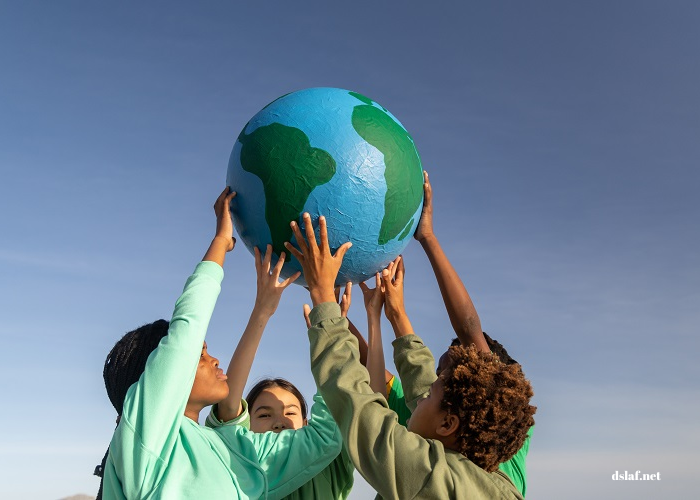In an era marked by rapid technological advancement and unprecedented global interconnectedness, contemporary lifestyle is an evolving mosaic of trends and transformations. The complexities of modern living encompass various facets, from digitalization and work-life balance to health consciousness and environmental sustainability. This article delves into these multifaceted trends, examining how they shape our daily lives and societal structures.
The Digital Revolution and Its Impact
The digital revolution stands at the forefront of contemporary lifestyle transformations. The proliferation of smartphones, social media, and the internet has redefined communication, entertainment, and even our sense of identity. Digitalization offers unparalleled convenience and connectivity but also introduces new challenges.
Social Media and Identity
Social media platforms like Facebook, Instagram, and Twitter have become integral to daily life, influencing how we perceive ourselves and others. They serve as spaces for self-expression and community building, but they also contribute to issues such as digital addiction, privacy concerns, and mental health problems. The curated nature of social media content often fosters unrealistic expectations and comparisons, impacting self-esteem and leading to phenomena like FOMO (Fear of Missing Out).
The Gig Economy
Digital platforms have revolutionized the job market, giving rise to the gig economy. Services like Uber, Airbnb, and Fiverr offer flexible work opportunities, allowing individuals to monetize their skills and assets. However, this shift also brings instability and lack of traditional job benefits, posing questions about workers’ rights and economic security.
Work-Life Balance in the Modern Era
Achieving work-life balance is increasingly challenging in today’s fast-paced world. The lines between work and personal life blur due to the ubiquitous nature of technology and the demands of the global economy.
Remote Work and Flexibility
The COVID-19 pandemic accelerated the adoption of remote work, proving that many jobs can be done from anywhere with an internet connection. This shift has allowed for greater flexibility and reduced commuting times, contributing to better work-life balance for some. However, it also presents difficulties in setting boundaries, leading to burnout and the erosion of personal time.
The 4-Day Work Week
Innovative approaches like the 4-day work week are being explored to enhance productivity and employee well-being. Trials in various countries have shown promising results, including increased job satisfaction and improved mental health. This trend signifies a potential transformation in how we perceive and structure work.
Health Consciousness and Wellness Trends
Health and wellness have become central to contemporary lifestyle, driven by increased awareness and access to information. This focus spans physical, mental, and emotional well-being.
Fitness and Technology
The integration of technology into fitness regimes has revolutionized how people approach exercise. Wearable devices like Fitbits and smartwatches track physical activity, sleep patterns, and even stress levels, enabling individuals to make informed decisions about their health. Online platforms and apps provide access to personalized workout programs and virtual fitness classes, making fitness more accessible.
Mental Health Awareness
There is a growing recognition of the importance of mental health, leading to more open discussions and reduced stigma. Employers are increasingly offering mental health resources, and teletherapy has made counseling more accessible. Mindfulness practices and stress-reduction techniques, such as meditation and yoga, have gained popularity as part of holistic wellness routines.
Environmental Sustainability and Conscious Living
Sustainability is a critical concern shaping contemporary lifestyles. As awareness of environmental issues grows, individuals and communities are adopting more sustainable practices.
Minimalism and Conscious Consumption
Minimalism advocates for simplicity and intentional living, encouraging people to prioritize experiences over material possessions. This lifestyle reduces waste and promotes environmental sustainability. Conscious consumption involves making informed choices about products, considering their environmental impact, and supporting ethical brands.
Green Technology and Innovation
Technological advancements are driving sustainable solutions. Innovations such as electric vehicles, renewable energy sources, and smart home systems contribute to reducing carbon footprints. Urban planning is also evolving, with smart cities aiming to create more sustainable and efficient living environments.
The Evolution of Social Dynamics
Contemporary lifestyles are also characterized by shifting social dynamics, influenced by changing cultural norms and values.
Diversity and Inclusion
There is a growing emphasis on diversity and inclusion in all aspects of life, from the workplace to media representation. This trend fosters a more equitable society, where different perspectives and backgrounds are valued and celebrated. Organizations are increasingly implementing policies and practices to promote inclusivity and address systemic biases.
Changing Family Structures
Family structures are evolving, with traditional models being complemented by a variety of forms, including single-parent families, cohabitation, and same-sex partnerships. This shift reflects broader changes in societal attitudes towards marriage, gender roles, and parenting. It also necessitates new approaches to social policies and support systems.
The Role of Education in Contemporary Lifestyle
Education is pivotal in shaping contemporary lifestyles, equipping individuals with the skills and knowledge to navigate a complex world.
Lifelong Learning
The concept of lifelong learning has gained prominence, recognizing that education does not end with formal schooling. Continuous skill development is essential in adapting to changing job markets and technological advancements. Online courses and educational platforms provide accessible opportunities for professional and personal growth.
STEM and Beyond
While there is a strong emphasis on STEM (Science, Technology, Engineering, and Mathematics) education to meet the demands of the modern economy, there is also a renewed appreciation for the humanities and arts. A well-rounded education fosters critical thinking, creativity, and empathy, skills that are crucial in addressing contemporary challenges.
The Interplay of Globalization and Localism
Globalization has interconnected the world, facilitating cultural exchange and economic collaboration. However, it also brings challenges such as cultural homogenization and economic inequality.
Cultural Exchange and Hybridization
Globalization fosters cultural exchange, leading to the hybridization of traditions and practices. This phenomenon enriches societies, introducing diverse perspectives and fostering innovation. However, it also raises concerns about preserving cultural identities and heritage.
Localism and Community Focus
In response to the challenges of globalization, there is a growing movement towards localism, emphasizing the importance of local economies and communities. This trend advocates for supporting local businesses, sourcing locally-produced goods, and fostering community engagement. It seeks to balance the benefits of global interconnectedness with the need for local sustainability and resilience.
Technology and Human Connection
While technology facilitates connectivity, it also impacts human relationships and interactions in complex ways.
Digital Communication
Digital communication tools like video calls, messaging apps, and social media enable people to stay connected across distances. These tools have become essential, especially during global crises like the COVID-19 pandemic. However, they also pose challenges in maintaining the depth and quality of interpersonal relationships, often leading to superficial interactions and digital fatigue.
The Rise of AI and Automation
Artificial intelligence (AI) and automation are transforming various sectors, from healthcare and education to finance and manufacturing. These advancements enhance efficiency and create new opportunities but also raise ethical concerns and potential job displacement. The integration of AI into daily life necessitates a reevaluation of human roles and responsibilities in an increasingly automated world.
Navigating Uncertainty and Complexity
Contemporary lifestyles are marked by uncertainty and complexity, driven by rapid change and unforeseen challenges.
Resilience and Adaptability
Resilience and adaptability have become essential traits in navigating contemporary life. The ability to adapt to change, whether in personal or professional contexts, is crucial for well-being and success. This requires a mindset that embraces lifelong learning, flexibility, and proactive problem-solving.
Mental Health and Coping Mechanisms
The complexities of modern life can contribute to stress and anxiety. Developing effective coping mechanisms, such as mindfulness practices, social support networks, and professional mental health resources, is vital for maintaining mental well-being. Building emotional resilience helps individuals navigate uncertainties and recover from setbacks.
Conclusion
Navigating the complexities of contemporary lifestyle requires a multifaceted approach that balances technological advancements with human-centric values. The trends and transformations shaping modern life present both opportunities and challenges, demanding adaptability, resilience, and informed decision-making. As we continue to evolve, embracing sustainable practices, promoting inclusivity, and fostering holistic well-being will be essential in creating a balanced and fulfilling lifestyle in the 21st century.



